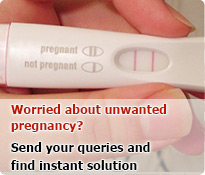Recently updated on February 2nd, 2023 at 05:58 am
Women can prevent pregnancy by using the contraceptive pill, Loette. It has both progestin and estrogen in low dose format to prohibit the occurrence of pregnancy by diffusing the chances of ovaries releasing matured eggs for fertilization. The medicine also alters the cervix and uterus so that the implantation does not happen, and sperm cannot enter the uterine space for causing pregnancy.
The medication is available in a 21 or 28-day format. The product releases synthetic hormones to block LH and FSH gonadotropic hormones (responsible for ovulation). The uterine lining turns ripe when the medicine acts, and cervical mucus thickens. Shedding of the endometrium occurs when hormonal supplements of contraception are not provided creating withdrawal bleeding.
Dosage Indication for Birth Control Tablets
The former schedule includes 21 active tablets, to be taken one each day at the same time, orally with water. Then, a gap of 7 days should be maintained, wherein the user does not take any hormonal birth control measures. In 28 day schedule, the last 7 placebo days are replaced by 7 inert tablets, to be used every day after the active pill dosage is completed.
A new pack of Loette contraceptives is to be started on the 29th day. The woman will start menstruation with a placebo or inert tablet intake period. Even if the menses continue after the placebo duration, the person has to begin with the new course, or use non-hormonal protection for birth.
Loette Pill Side Effects
The possible side effects of hormonal birth control are dizziness, diarrhea, vomiting, appetite alteration, mood swings, anxiety, nausea, and headache. Some of the rare complications are heart attack, artery blood clot, brain strokes, hepatic adenoma, gall bladder inflammation, jaundice, gall stones, liver cancer, etc. The chances of contracting severe side effects are very rare if the product usage is spaced out comfortably.
Contraindications
Certain conditions are not conducive to the effects of contraceptive medicines. These include hypersensitivity to Loette ingredients, vascular issues (deep vein thrombosis, thrombophlebitis), coronary heart disease, cerebrovascular disorders, blood clotting affiliation disorders, suspected pregnancy, undiagnosed vaginal bleeding, breastfeeding, cancer, gastrointestinal troubles, eye condition, epilepsy, and few other critical disorders.
Warnings
Blood clotting in vessels is at higher risk as age progresses and in smokers. Thus, females who smoke a lot, and are above the 35 years age benchmark are at risk of serious vascular effects, and cardiac disorders, if they use the Loette birth control pill. The product is not for abortion or to avert HIV and other transmitted diseases sexually. Alcohol use during the course must be omitted or moderated.
Interactions
Certain medicines reduce the efficacy of Loette medication or may include health hazards when these interact with each other. Thus, the users must restrict from utilizing the medicines such as barbiturates, particular antibiotics (tetracycline, ampicillin), Rifampicin, St. John’s wort, Modafinil, Ritonavir, Rifabutin, Topiramate, Phenytoin, Primidone, Griseofulvin, Dexamethasone, Atorvastatin, Acetaminophen, Phenylbutazone, vitamin C, Fluconazole, Indinavir, etc.


